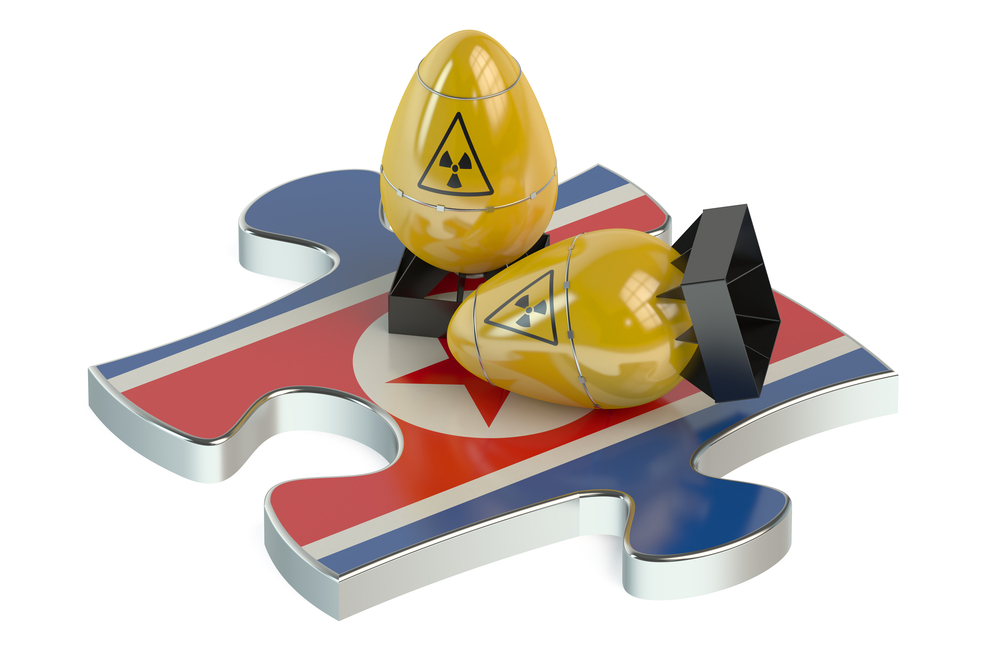The U.S.’s Broken North Korea Policy

Please note that we are not authorised to provide any investment advice. The content on this page is for information purposes only.
Following the latest North Korean nuclear test on 6 January, the Obama administration has resuscitated the Bush administration’s flawed expectation that China act in place of the United States in negotiating with North Korea. This expectation exposes a lack of insight into China’s foreign policy view and any real strategic logic for the actors involved.
Following the latest North Korean nuclear test on 6 January, the Obama administration has resuscitated the Bush administration’s flawed expectation that China act in place of the United States in negotiating with North Korea. This expectation exposes a lack of insight into China’s foreign policy view and any real strategic logic for the actors involved.
US Secretary of State John Kerry seemingly did not see any irony in his calls for the Chinese to change their policy direction towards North Korea despite the fact that the US’s current course is clearly not working.
The Obama administration would do well to heed the lessons of late Ambassador Stephen Bosworth’s successful engagement with North Korea. His ideas and policy prescriptions for the Korean peninsula were so exceptionally effective and successful in the 1990s, and yet so tragically and counterproductively ignored over the past 15 years.
is impact on policy toward the DPRK — and in particular his view of the roles of the United States, other states and NGOs such as the Korean Peninsula Energy Development Organization (KEDO) — represent some of the most important missed opportunities of 21st-century US policy.
KEDO is still one of the most imaginative and effective models for successful deals towards disarmament and development. The recent progress towards deals on nuclear energy with Iran, and re-opening diplomatic relations with Cuba, owes much to KEDO and to the 1994 Agreed Framework between the United States and the DPRK.
All three agreements reject the optics of surrender often demanded by their critics. All recognise that any agreement must provide an advantage that is strategic and credible from the point of view of the other side. In addition, all can have multiple positive impacts in their region if followed in both letter and spirit.
Bosworth’s ideas and his accomplishments also led directly to the moment when one of the two most reckless and ill-considered policy initiatives of the George W. Bush era were undertaken. The United States’ radical reversal of its North Korea policy in 2001 still reverberates today. The abandonment of the Agreed Framework destroyed the KEDO structure and prospects for a non-nuclear North Korea. That alone has negatively impacted the global nuclear non-proliferation regime.
Over a decade of careful diplomatic work by the United States, President Bush substituted South Korea and others for a naïve expectation, and his successor, that China would do what the US administration was unwilling to do and convince North Korea to limit its nuclear program. It almost doesn’t matter which was worse; that the two administrations and their supporters never expected the Chinese to curb North Korean nuclear expansion, or that for some reason they did. Either way, honest policy discussion ceased.
It was clear in 2001, that careful yet momentous changes in the region were about to be squandered. The ambition to achieve positive change would now evaporate. Hollow posturing and ideology dressed up as strategy would take its place. Childish notions from US officials like ‘we don’t negotiate with evil’, ‘buying the same horse twice’ and ‘rewarding bad behaviour’ would embarrass a generation of US policy specialists. Moreover, the consequences of those mistakes may be felt well into the future.
Bosworth had quite a different view. As an obituary in The Washington Post quoted, ‘Much of diplomacy is rewarding bad behaviour’, Bosworth once remarked on the PBS program ‘Frontline’, responding to critics who argued against meeting with North Korea. ‘You’re trying to figure out how you can stop the worst of the behaviour at the lowest-possible price’.
Bosworth would have probably preferred to overcome the North’s accumulation of a batch of uranium reprocessing hardware and materials, mainly from Pakistan, by using the enormous leverage created by the Agreed Framework process, Kim Dae Jung’s North–South Korean and multilateral engagement and accumulated previous efforts.
It would only require modest diplomatic skill to use some of that leverage to suppress and eliminate the uranium channel necessary for a bomb. Preserving and using the KEDO process could have changed the region.
Some of the distrust and tension now evident in Northeast Asia can be traced to wounds inflicted by the lack of good faith and the arrogance demonstrated by the Bush administration — embraced by the Obama administration.
US policy needs to acknowledge those wounds, as well as the real Chinese and American interests on the Korean peninsula and how to address them in order to effectively curb North Korea’s nuclear programs. Without such acknowledgement, there is little likelihood that the next US administration will fairly review the past 16 years and find a practical way forward.
Four presidential terms, a disastrous policy trail, and the exit of many of the best diplomatic professionals who knew the Northeast Asian landscape have rendered the US almost paralysed before these challenges.
Neither the Japanese nor the Chinese currently have the capability or strategic vision to change today’s trajectories towards insecurity. It is actually quite the opposite. In addition, on the Korean peninsula, the place where Bosworth did some of his best and most important work, the forces that could lead to a serious rethink of how to address regional problems are divided and not yet prepared to argue, to persuade and to fight for a better solution. I wonder what Bosworth would advise them now, if he could?
US North Korea policy should acknowledge past success is republished with permission from East Asia Forum




